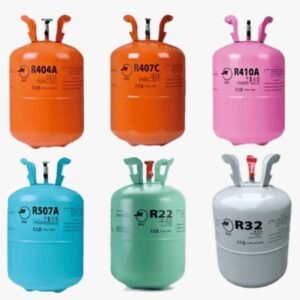Baby Care Basics: Choosing the Right Diapers and Hygiene Products

Caring for a baby involves attention to many details, and among the most essential aspects are baby diapers and hygiene products. These items play a crucial role in maintaining the baby’s comfort, health, and cleanliness. Understanding the variety, features, and benefits of baby diapers and hygiene products helps parents and caregivers make informed choices to ensure their little ones receive the best care possible.
Importance of Baby Diapers
Baby diapers are one of the most fundamental necessities for newborns and infants. They provide a hygienic solution for managing a baby’s waste and help prevent discomfort and rashes caused by prolonged exposure to moisture. The choice of baby diapers can significantly affect a baby’s skin health and overall well-being.
Types of Baby Diapers
There are several types of baby diapers available in the market, each designed to meet different needs and preferences.
Disposable Diapers
Disposable diapers are highly popular due to their convenience. They are designed for single use and are made with absorbent materials that lock moisture away from the baby’s skin. These diapers often include features such as wetness indicators, elastic leg cuffs, and breathable layers that reduce the risk of diaper rash.
Cloth Diapers
Cloth diapers are reusable and environmentally friendly. They are typically made from cotton or bamboo fabrics, which are gentle on the baby’s skin. Although they require washing after each use, many parents prefer cloth diapers for their cost-effectiveness and sustainability.
Hybrid Diapers
Hybrid diapers combine the benefits of disposable and cloth diapers. They have a reusable outer shell with a disposable insert that can be replaced as needed. This option is ideal for parents looking to reduce waste while maintaining convenience.
Features to Consider in Baby Diapers
When selecting baby diapers, several features should be taken into account to ensure the best comfort and protection for the baby.
- Absorbency: High absorbency is essential to keep the baby’s skin dry and prevent leaks.
- Material: Soft, hypoallergenic materials help reduce irritation and allergic reactions.
- Fit: Proper sizing and flexible waistbands allow for free movement and prevent discomfort.
- Breathability: A breathable diaper helps air circulation, reducing the chance of rashes.
- Eco-friendliness: Biodegradable diapers are becoming increasingly popular among environmentally conscious parents.
Essential Hygiene Products for Babies
Along with baby diapers, hygiene products are vital for maintaining a baby’s health and cleanliness. These products help keep the baby clean, soothe sensitive skin, and prevent infections.
Baby Wipes
Baby wipes are indispensable for cleaning a baby during diaper changes. They are designed to be gentle, often containing moisturizing ingredients like aloe vera or vitamin E to protect delicate skin. Parents should look for wipes that are fragrance-free and alcohol-free to minimize irritation.
Diaper Rash Creams
Diaper rash is a common problem caused by prolonged exposure to moisture and friction. Diaper rash creams act as a protective barrier, soothe inflammation, and promote healing. Ingredients such as zinc oxide and petrolatum are commonly used in these creams to create a moisture-resistant layer on the skin.
Baby Baths and Cleansers
Regular bathing is essential for hygiene and comfort. Baby-specific baths and cleansers are formulated to be mild and non-irritating. These products help maintain the natural oils of the skin while effectively removing dirt and bacteria.
Baby Powder
Baby powder can help keep the skin dry by absorbing excess moisture. However, it is important to use powders specifically designed for babies, which are free from harmful substances like talc. Cornstarch-based powders are considered a safer alternative.
Nasal Aspirators and Other Hygiene Tools
Additional hygiene products include nasal aspirators for clearing a baby’s nasal passages, soft brushes for scalp care, and nail clippers designed to prevent accidental cuts. These tools aid in overall cleanliness and health maintenance.
How to Use Baby Diapers and Hygiene Products Effectively
Proper use of baby diapers and hygiene products ensures the baby stays comfortable and healthy. Following a routine can help prevent common issues such as diaper rash and infections.
Diaper Changing Tips
Changing diapers frequently is key to preventing discomfort and skin problems. Parents should:
- Change the diaper as soon as it is soiled.
- Clean the baby’s skin gently using wipes or warm water and a soft cloth.
- Allow the skin to air dry before putting on a new diaper.
- Apply diaper rash cream if needed.
- Ensure the diaper fits snugly but not too tight to avoid irritation.
Bathing and Cleaning Routine
Bathing a baby should be a gentle process. Use lukewarm water and baby-safe cleansers. Avoid harsh soaps and prolonged exposure to water, which can dry out the skin. Always support the baby’s head and neck securely during bath time.
Choosing the Right Products for Sensitive Skin
Babies often have sensitive skin that reacts to strong fragrances, chemicals, or rough textures. It is advisable to choose hypoallergenic and dermatologist-tested products. Conducting a patch test before using a new product can help identify any potential allergic reactions.
Environmental Considerations
The widespread use of disposable baby diapers raises concerns about environmental impact. Many disposable diapers take hundreds of years to decompose in landfills, contributing to waste management challenges. Eco-conscious parents may opt for biodegradable diapers or cloth diapers as greener alternatives.
Similarly, the ingredients and packaging of hygiene products can affect the environment. Choosing products with natural ingredients and minimal plastic packaging can reduce environmental footprints.
Innovations in Baby Diapers and Hygiene Products
The baby care industry continues to evolve with innovations aimed at improving comfort, safety, and environmental sustainability.
Smart Diapers
Smart diapers embedded with sensors can alert parents when the diaper is wet, reducing the time the baby spends in a soiled diaper and preventing rashes.
Organic and Natural Products
There is a growing trend towards organic and natural hygiene products, free from synthetic chemicals and artificial fragrances. These products offer a safer option for babies with extremely sensitive skin.
Biodegradable Diapers
Advances in materials science have led to the development of biodegradable diapers that break down more quickly after disposal, helping reduce landfill waste.
Conclusion
Baby diapers and hygiene products are integral to infant care, ensuring babies stay clean, dry, and comfortable. Understanding the different types, features, and proper usage of these products helps parents provide the best care for their little ones.





